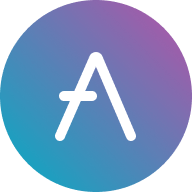AAVE and PAXG: Exploring Tokenized Gold and DeFi Opportunities
Introduction to AAVE and PAXG
In the dynamic world of cryptocurrency, two groundbreaking innovations have emerged: AAVE, a leading decentralized finance (DeFi) protocol, and PAXG (Pax Gold), a tokenized gold asset. While AAVE is revolutionizing lending and borrowing in the DeFi space, PAXG bridges the gap between traditional gold investments and blockchain technology. This article explores the features, use cases, and market dynamics of these two assets, showcasing their significance in the evolving crypto ecosystem.
What Is PAXG? Tokenized Gold Explained
PAXG (Pax Gold) is an ERC-20 token backed by one troy ounce of London Good Delivery gold. Each PAXG token represents physical gold stored in secure vaults, offering investors a seamless way to gain exposure to gold without the logistical challenges of storage and transportation.
Key Features of PAXG
Backed by Physical Gold: Each token is tied to LBMA-accredited gold, ensuring trust and transparency.
Redemption Options: Investors can redeem PAXG for physical gold or opt for secure vault storage.
ERC-20 Compatibility: PAXG can be traded, transferred, and integrated into Ethereum-based applications, enhancing its utility.
Market Capitalization and Growth of PAXG and XAUT
Tokenized gold assets like PAXG and XAUT (Tether Gold) have experienced significant growth in recent years. Since February 2021, PAXG's market capitalization has surged by 407%, while XAUT has grown by 248%. Despite this growth, their combined market capitalization remains a fraction of the global gold market, valued at approximately $11.795 trillion.
Key Statistics
PAXG Transfer Activity: Over 846,000 transfers since inception, reflecting higher adoption.
XAUT Transfer Activity: Only 13,654 transfers, indicating lower usage compared to PAXG.
Concentration of Ownership: The top 10 wallets hold 34.13% of PAXG and 98.23% of XAUT, highlighting centralization concerns.
AAVE: Unlocking DeFi Lending and Borrowing
AAVE is a decentralized finance protocol that allows users to lend and borrow cryptocurrencies without intermediaries. Built on Ethereum, AAVE has become a cornerstone of the DeFi ecosystem, offering innovative features that cater to both retail and institutional users.
Key Features of AAVE
Flash Loans: Instant, uncollateralized loans designed for advanced trading strategies and arbitrage opportunities.
Interest-Bearing Tokens: Users earn passive income by depositing assets into AAVE's liquidity pools.
Multi-Asset Support: AAVE supports a wide range of cryptocurrencies, making it a versatile platform for DeFi participants.
Tokenized Gold vs. Physical Gold: A Comparison
Tokenized gold assets like PAXG and XAUT offer several advantages over traditional physical gold investments, but they also come with unique challenges.
Benefits of Tokenized Gold
Accessibility: Trade gold-backed tokens on cryptocurrency exchanges 24/7, unlike traditional gold markets.
Fractional Ownership: Purchase smaller amounts of gold without needing to buy full troy ounces.
Integration: Use tokenized gold in DeFi applications, such as collateral for loans or yield farming.
Challenges
Regulatory Uncertainty: Compliance frameworks like MiCA in the European Union are shaping the availability of tokenized assets.
Premiums and Discounts: Tokenized gold may trade at a premium or discount compared to the spot price of gold, depending on market conditions.
Trading Activity and Wallet Distribution
PAXG and XAUT are primarily traded on major cryptocurrency exchanges, with PAXG's most popular trading pair being USDT. However, the distribution of these tokens reveals significant centralization:
PAXG: The top 10 wallets hold 34.13% of the total supply, raising questions about decentralization.
XAUT: The top 10 wallets control a staggering 98.23% of the supply, indicating even higher centralization.
This concentration could impact liquidity and the broader adoption of tokenized gold assets.
Regulatory Impact on Tokenized Gold
Regulatory frameworks like MiCA (Markets in Crypto-Assets) in the European Union are shaping the future of tokenized assets like PAXG. For example, some exchanges have delisted non-compliant assets to align with these regulations. As the crypto industry matures, compliance will play a pivotal role in determining the availability and adoption of tokenized gold.
Integration of Tokenized Gold into DeFi Ecosystems
Tokenized gold assets like PAXG are increasingly being integrated into DeFi platforms. For instance, PAXG can be used as collateral for loans, enabling investors to leverage their gold holdings without selling them. This integration bridges the gap between traditional investments and decentralized finance, offering new opportunities for portfolio diversification and liquidity management.
Conclusion
AAVE and PAXG represent two transformative innovations in the cryptocurrency space. AAVE empowers users with decentralized lending and borrowing, while PAXG modernizes gold investment through tokenization. Together, these assets highlight the potential of blockchain technology to reshape traditional financial systems.
Whether you're exploring DeFi opportunities with AAVE or seeking exposure to gold through PAXG, these assets offer unique value propositions tailored to diverse investment strategies. As the crypto ecosystem continues to evolve, the integration of tokenized assets and DeFi protocols will play a pivotal role in shaping the future of finance.
© 2025 OKX. Este artículo puede reproducirse o distribuirse en su totalidad, o pueden utilizarse fragmentos de 100 palabras o menos de este artículo, siempre que dicho uso no sea comercial. Cualquier reproducción o distribución del artículo completo debe indicar también claramente lo siguiente: "Este artículo es © 2025 OKX y se utiliza con permiso". Los fragmentos permitidos deben citar el nombre del artículo e incluir su atribución, por ejemplo "Nombre del artículo, [nombre del autor, en su caso], © 2025 OKX". Algunos contenidos pueden generarse o ayudarse a partir de herramientas de inteligencia artificial (IA). No se permiten obras derivadas ni otros usos de este artículo.



